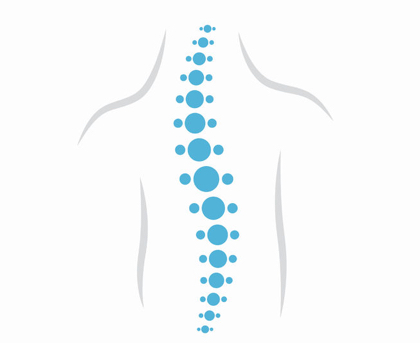Signs and Symptoms
Scoliosis is a condition that causes an abnormal curve of the spine. The curve can affect the upper (thoracic) or lower (lumbar) spine, or both. The most common type of scoliosis is idiopathic or having no known cause.
Other types of scoliosis can be congenital in nature or can arise as a result of neuromuscular conditions e.g. spina bifida or cerebral palsy. A functional scoliosis can develop in adulthood in response to an injury or a strong asymmetrical activity e.g. serving at tennis. Scoliosis is classed as mild, moderate or severe and is measured in degrees known as a Cobb Angle.
Scoliosis can lead to pain, restricted breathing and limited physical activity; therefore it is important to be diagnosed and treated appropriately.
Our Treatment & Expertise
Early detection is key to preventing the condition from progressing. At Bray Physiotherapy, we aim to routinely screen our younger clients, examining the spine, shoulders, rib cage, pelvis, legs and feet for abnormalities and asymmetry.
As pain and inflammation settles we then optimise the strength and flexibility of the muscles on either side of the scoliosis and any other area affected. We will restore normal range of joint motion, balance, length and strength of muscles and restore function to allow resumption of daily and sporting activities.
On-going self management is vital to prevent recurrence of symptoms. Personalised exercise programmes will be devised and encouraged on a long-term basis.


